
Green Lab
Jessica Ford
The ecological consequences of tadpole loss
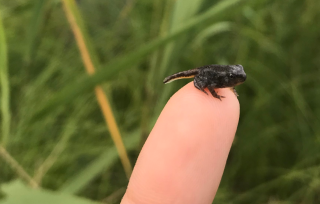 I study the effect of tadpoles on an ecosystem, looking at how ecosystems change when tadpoles are present, or absent. Amphibian populations are declining worldwide, and I study how water quality, algae, and zooplankton communities change in response to their loss.
I study the effect of tadpoles on an ecosystem, looking at how ecosystems change when tadpoles are present, or absent. Amphibian populations are declining worldwide, and I study how water quality, algae, and zooplankton communities change in response to their loss.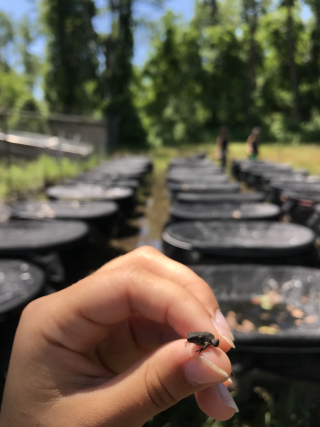
I also raise toad tadpoles, some of them endangered, into tiny toadlets to be released, hopefully boosting the local population.
IMAGES by: Jessica Ford

|
Jessica is passionate about herpetology, conservation, and outreach. When not covered in mud, she does outreach events and talks for kids and the public about her research, and has also authored and illustrated a colouring and activity book for kids about women and underrepresented groups in STEMM.
|
Nathalie Jreidini
Animal movement and dispersal: quantitative analyses on long-term empirical datasets
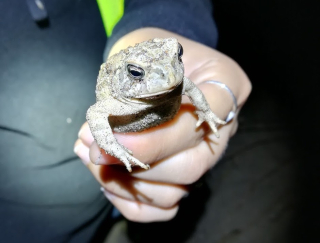 The unidirectional long-term movement of individuals, defined as dispersal, impacts species distributions as well as individual fitness and population dynamics. Ecologists from various fields have strived to find the fundamental drivers of animal dispersal; do animals differ in their dispersal propensities, or do they move at random? Why do animals leave seemingly "optimal" habitats? For my PhD, I am using 18 years of toad movements across a long sandspit to test theoretical dispersal concepts using various quantitative techniques.
The unidirectional long-term movement of individuals, defined as dispersal, impacts species distributions as well as individual fitness and population dynamics. Ecologists from various fields have strived to find the fundamental drivers of animal dispersal; do animals differ in their dispersal propensities, or do they move at random? Why do animals leave seemingly "optimal" habitats? For my PhD, I am using 18 years of toad movements across a long sandspit to test theoretical dispersal concepts using various quantitative techniques.
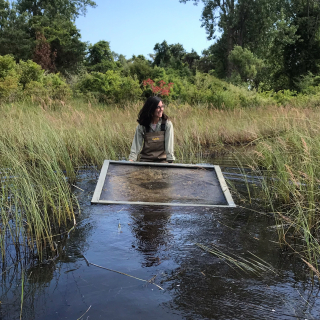 The goal is to suggest a new view for the dispersal phenomenon and bridge the gap between theory and empirical evidence in the field.
The goal is to suggest a new view for the dispersal phenomenon and bridge the gap between theory and empirical evidence in the field.
IMAGES by Nathalie Jreidini
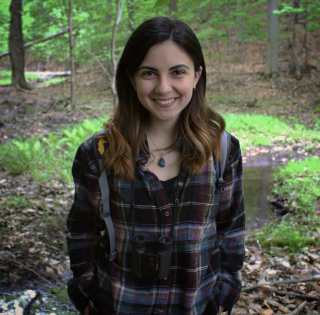
|
Salut! My name is Nat. I grew up in Lebanon and moved to Montreal for my BSc Biology degree. I immediately felt at home in Montreal, which is why I am still here 6 years later! I consider myself a quantitative wildlife biologist since I couple statistical and modeling techniques with empirical datasets to explore correlations in movement ecology. I hope to use the skills I have acquired during grad school to address large-scale issues in wildlife management after I complete my PhD.
|

